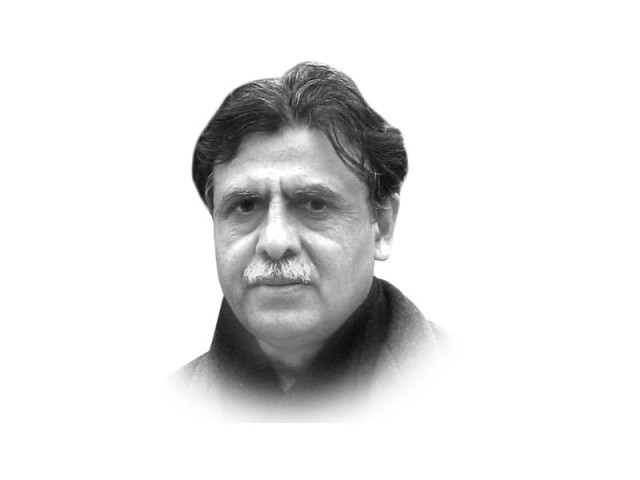Making use of actionable intelligence
Pakistan is facing an existential threat, which cannot and should not be fought by the army alone.

The writer is a public policy analyst and a former interior secretary
Security lapses and intelligence failures in different parts of the country have raised serious questions about the efficacy of our intelligence operations. The interior minister, during his recent visit to Quetta, was reportedly appalled at the level of coordination among different agencies. The situation in Balochistan is complex — there is a movement launched by the so-called separatist nationalists and ultra-sectarian militants, while the issue of missing persons and mutilated bodies further aggravates the scene.
The FC holds the key to maintaining internal security in Balochistan. Its long and over-extended presence in matters of internal security is causing increasing wariness within the intelligentsia. However, it should be noted that the FC is performing its professional duties against heavy odds and that this arrangement has not been foisted on the province. The FC has been called in on the provincial government’s request. Balochistan’s leadership has often shown dichotomy on this issue. There has never been a concerted move to build indigenous resources to man the critical area of internal security. There was a programme to extend policing to ‘B’ areas of the province that are spread over a huge swathe of territory and population. It also included training and upgrading of the police force. The programme, however, was reversed on the persuasion of influentials of the province. After the passage of the Eighteenth Amendment, with more resources at its disposal, the newly-elected government should start working on a long-term plan in this regard.
Recent events are highlighting the failures of the intelligence agencies and their laidback response to actionable information. A closer look at intelligence gathering, collation and its use makes for some instructive reading. Such information may be timely but in essence, it is more often estimative in nature. The recipient of the information, at times, is not so well clued in to read between the lines. The timing of the likely occurrence of possible terrorist incidents is often not known. This indeterminate span of time draws an inert response from law enforcement agencies, especially as they are occupied with multiple tasks.
There are a host of agencies in the business, working in accordance with the ‘stove pipe' approach, where information flows vertically without lateral sharing with other agencies. Time is lost on account of turf battles.
Intelligence networks should not only concentrate on the actual occurrence but also should keep track over the supply chain spawning these deadly acts. In an attack on the Hazaras that took place earlier in the year in Quetta, for instance, chemicals for the explosives were procured from Akbari Mandi, Lahore, an unregulated market for bulk purchases of chemicals. One wonders whether the Punjab government took any instant remedial step to redress this situation. On a personal note, while conducting an inquiry in late 1999 into the serial killings by accused Javed Iqbal, who infamously murdered 100 children, it was found that he had been procuring drums of acid from this very market for dissolving the bodies of sedated children after sexually assaulting them.
Information sharing, at the same time, has to be fusion-based, more interactive and informal at the operational level. There is a need for continually upgrading skills of those who gather intelligence and those whose responsibility it is to make its use more actionable.
While reflecting on our efforts regarding counterterrorism, we lost precious years in deciding where to park the new set-up of the National Counterterrorism Authority. The matter had been vacillating between the Interior Division and the Prime Minister Secretariat. The president, in whose name the administration of the tribal areas is run, the prime minister and the ministers for interior and defence did not have time in the last five years to put their feet on the soil of the tribal areas. All this says a lot about our political leadership’s commitment to the war against terror.
We need to realise that Pakistan is facing an existential threat, which cannot and should not be fought by the army alone. Our political elite, waving an olive branch to these elements, need to have a broad sense of it. The war has to be fought with the same grit and firm resolve as was displayed by the valiant leadership and the brave, courageous people of Sri Lanka in their war against the Tamil Tigers. In the bargain, they were able to root out this most dreaded killing machine of the 20th century. Any hope of a permanent peace, short of that resolve, will be an elusive dream.
Published in The Express Tribune, July 11th, 2013.
Like Opinion & Editorial on Facebook, follow @ETOpEd on Twitter to receive all updates on all our daily pieces.















COMMENTS
Comments are moderated and generally will be posted if they are on-topic and not abusive.
For more information, please see our Comments FAQ